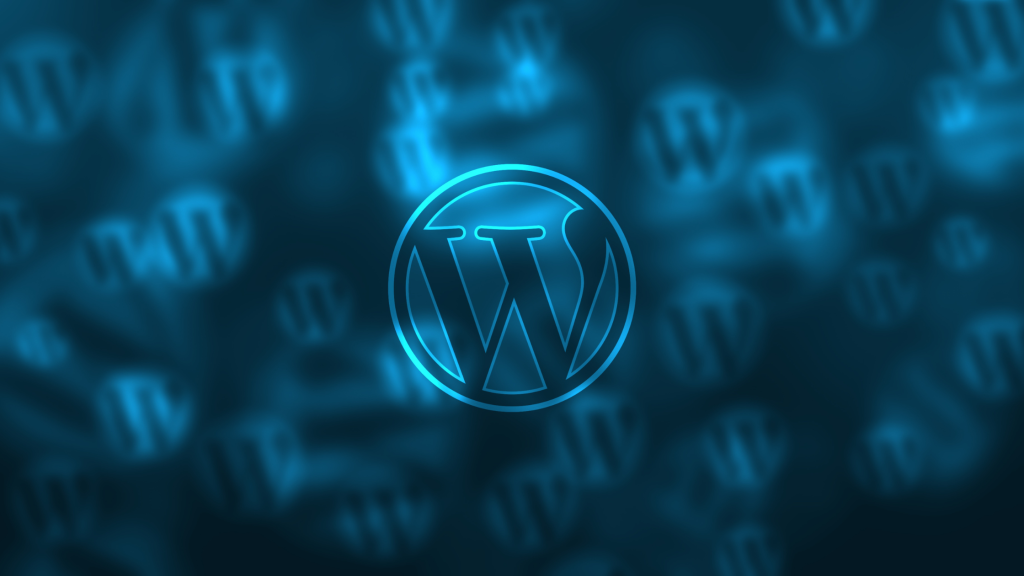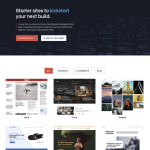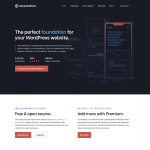WordPress is one of the most popular website builders available today, powering over 43% of all websites on the internet. Despite its popularity, however, many users have reported difficulties with the platform. In this article, we will explore some of the reasons why WordPress may not be the best choice for your website.
One of the main concerns with WordPress is its security. Due to its popularity, WordPress is a common target for hackers, and vulnerabilities in plugins, themes, or the WordPress core itself can leave websites open to attack. While it is possible to take steps to improve the security of a WordPress site, such as keeping software up to date and using strong passwords, the risk of a breach remains a concern for many users.
Security Vulnerabilities
WordPress is notorious for its security vulnerabilities. While it is a popular platform that powers millions of websites, it is also a prime target for hackers due to its open-source nature. In this section, we will discuss the security vulnerabilities that are commonly associated with WordPress.
Core Software
The core software of WordPress is the foundation of the platform. It is responsible for managing the basic functions of the website, such as user authentication, content management, and site navigation. However, it is also one of the most vulnerable parts of the platform. Hackers often target the core software to gain access to sensitive information or to take control of the website.
One of the most common vulnerabilities associated with the core software is outdated versions. WordPress is constantly releasing updates to address security issues, but many website owners fail to update their websites. This leaves their websites vulnerable to attacks that exploit known security issues.
Plugins
Plugins are an essential part of WordPress, as they provide additional functionality and features to the website. However, they are also one of the most common security vulnerabilities. Plugins are developed by third-party developers, and they may not always follow best practices when it comes to security.
One of the most common vulnerabilities associated with plugins is outdated versions. Developers often release updates to address security issues, but website owners fail to update their plugins. This leaves their websites vulnerable to attacks that exploit known security issues.
Another common vulnerability associated with plugins is the use of insecure code. Some plugins may contain code that is vulnerable to attacks, such as SQL injection or cross-site scripting. Hackers can exploit these vulnerabilities to gain access to sensitive information or to take control of the website.
In conclusion, WordPress is a powerful platform that can be used to create stunning websites. However, it is also a prime target for hackers due to its popularity and open-source nature. To ensure the security of your website, it is important to keep your core software and plugins up-to-date, and to use plugins that follow best practices when it comes to security.
Performance Issues
WordPress is a popular content management system (CMS) that powers millions of websites worldwide. However, one of the most common complaints about WordPress is its performance. In this section, we will explore some of the performance issues that can affect a WordPress site.
Slow Loading Time
One of the most significant performance issues with WordPress is slow loading time. Slow loading time can lead to a poor user experience, which can result in high bounce rates and lower search engine rankings.
Several factors can contribute to slow loading time, including:
- Hosting: Poor quality hosting can lead to slow loading times. It’s essential to choose a hosting provider that offers fast and reliable servers.
- Plugins: Using too many plugins or poorly coded plugins can slow down your site. It’s important to use only essential plugins and ensure they are well-coded.
- Themes: Using a poorly coded or bloated theme can also slow down your site. It’s important to choose a lightweight and well-coded theme.
- Images: Large images can significantly slow down your site. It’s important to optimize your images by compressing them and reducing their file size.
- Caching: Caching can significantly improve your site’s loading time by storing frequently accessed data in a cache. It’s important to use a caching plugin to improve your site’s loading time.
To improve your site’s loading time, it’s essential to identify the factors that are causing slow loading times and take appropriate measures to address them. By optimizing your site’s hosting, plugins, themes, images, and caching, you can significantly improve your site’s loading time and provide a better user experience.
Learning Curve
One of the biggest complaints about WordPress is its steep learning curve. While it is true that WordPress can be challenging to use, it is not impossible. In this section, we will explore some of the reasons why WordPress has a high learning curve and how you can overcome them.
Coding Skills Required
One of the main reasons why WordPress can be difficult to use is that it requires some coding skills. If you want to create a custom WordPress theme or plugin, you will need to know HTML, CSS, and PHP. This can be daunting for beginners who have no experience with coding.
However, you don’t need to be a coding expert to use WordPress. There are plenty of pre-made themes and plugins available that you can use without any coding knowledge. Additionally, there are many online resources available that can help you learn the basics of coding.
Page Builder Plugin
Another reason why WordPress can be challenging to use is that it relies heavily on page builder plugins. While these plugins can be helpful, they can also be overwhelming for beginners.
Page builder plugins allow you to create custom layouts and designs for your website without any coding knowledge. However, they can be complex and difficult to navigate. Additionally, some page builder plugins can slow down your website, which can negatively impact your user experience.
To overcome this challenge, it is important to choose a page builder plugin that is user-friendly and lightweight. Look for plugins that have a drag-and-drop interface and are optimized for speed. Additionally, make sure to read reviews and do your research before choosing a page builder plugin.
In conclusion, while WordPress does have a high learning curve, it is not impossible to use. By learning the basics of coding and choosing the right page builder plugin, you can create a beautiful and functional website with WordPress.
Customization
Customization is one of the main reasons why people choose WordPress as their website platform. However, while it is true that WordPress allows for some level of customization, it is not as flexible as many people believe. In this section, we will discuss the limitations of WordPress customization and the design skills required to make the most out of it.
Limited Flexibility
WordPress is built on a set of pre-defined templates and structures, which means that there are limits to how much you can customize your website. While there are thousands of themes and plugins available, they are all built on the same underlying structure. This means that if you want to create a truly unique website, you will need to have a high level of technical expertise or hire a developer to customize your site.
Design Skills Required
Customizing a WordPress website requires a good understanding of web design principles. If you want to create a unique look and feel for your site, you will need to have a good eye for design and a solid understanding of HTML, CSS, and JavaScript. While there are many drag-and-drop website builders available, they are often limited in terms of customization options and can produce generic-looking websites.
To make the most out of WordPress customization, you will need to have a good understanding of web design principles and be comfortable working with code. If you lack the technical expertise required for customization, you may end up with a website that looks like many others on the web.
Compatibility Issues
WordPress is a popular content management system that powers millions of websites worldwide. However, it is not without its limitations. One of the most significant challenges that users face is compatibility issues. Here are some of the most common compatibility issues that users face when using WordPress.
Theme and Plugin Compatibility
One of the most common compatibility issues that users face is with themes and plugins. WordPress themes and plugins are developed by different developers, and sometimes they may not work well together. When this happens, it can cause your website to break, or some features may not work correctly.
The best way to avoid theme and plugin compatibility issues is to choose themes and plugins that are developed by reputable developers. You can also check the compatibility of themes and plugins before installing them on your website. This will help you avoid any compatibility issues that may arise.
Responsive Design
Another compatibility issue that users face is with responsive design. Responsive design is crucial for any website because it ensures that your website looks good on all devices, including desktops, laptops, tablets, and smartphones. However, not all WordPress themes are responsive, which can cause compatibility issues.
To avoid responsive design compatibility issues, you should choose a WordPress theme that is responsive. You can check the responsiveness of a theme by testing it on different devices. You can also use online tools to check the responsiveness of a theme before installing it on your website.
In conclusion, compatibility issues are a common problem that users face when using WordPress. The best way to avoid compatibility issues is to choose themes and plugins that are developed by reputable developers and to test the responsiveness of a theme before installing it on your website.
Expensive
One of the major drawbacks of using WordPress is that it can be expensive to manage. While it is true that WordPress is free to use, there are many costs associated with running a WordPress site.
Firstly, you need to purchase a domain name and web hosting to get your WordPress site up and running. This can cost anywhere from a few dollars a month to hundreds of dollars a month, depending on the size and traffic of your site.
In addition to the basic costs, there are also many premium themes and plugins that can add to the cost of running a WordPress site. While there are many free themes and plugins available, the premium ones often have more features and better support. These can cost anywhere from a few dollars to hundreds of dollars per year.
Furthermore, maintaining a WordPress site can also be expensive. As WordPress is an open-source platform, it requires regular updates to keep it secure and functioning properly. If you do not have the technical skills to do this yourself, you may need to hire a developer to do it for you. This can be costly, especially if you need regular updates or customizations.
Overall, while WordPress can be a cost-effective solution for some, it can also be expensive to manage, especially if you require customizations or have high traffic on your site. It is important to consider all the costs associated with running a WordPress site before making a decision.
Conclusion
In conclusion, WordPress has its pros and cons, and whether it is a good or bad platform depends on your specific needs and requirements. While WordPress is the most popular CMS today and offers a wide range of themes and plugins, it also has its fair share of flaws.
One of the biggest concerns with WordPress is its security. While it is not entirely true that WordPress is not secure, it is true that it is a popular target for hackers. Therefore, it is important to take extra measures to secure your WordPress website, such as using strong passwords, keeping your plugins and themes updated, and using a reliable hosting provider.
Another issue with WordPress is its performance. WordPress sites can be slow and sluggish, especially if you are using a lot of plugins or have a lot of content. To improve your site’s performance, you can optimize your images, use a caching plugin, and choose a reliable hosting provider.
Lastly, WordPress can be difficult to use and learn, especially for beginners. While there are many resources available online, such as tutorials and forums, it can still be overwhelming to navigate the platform. However, once you get the hang of it, WordPress can be a powerful tool for building and managing your website.
Overall, while WordPress may not be the perfect platform, it is still the most popular and widely used CMS today. Whether it is the right choice for your website depends on your specific needs and requirements.






